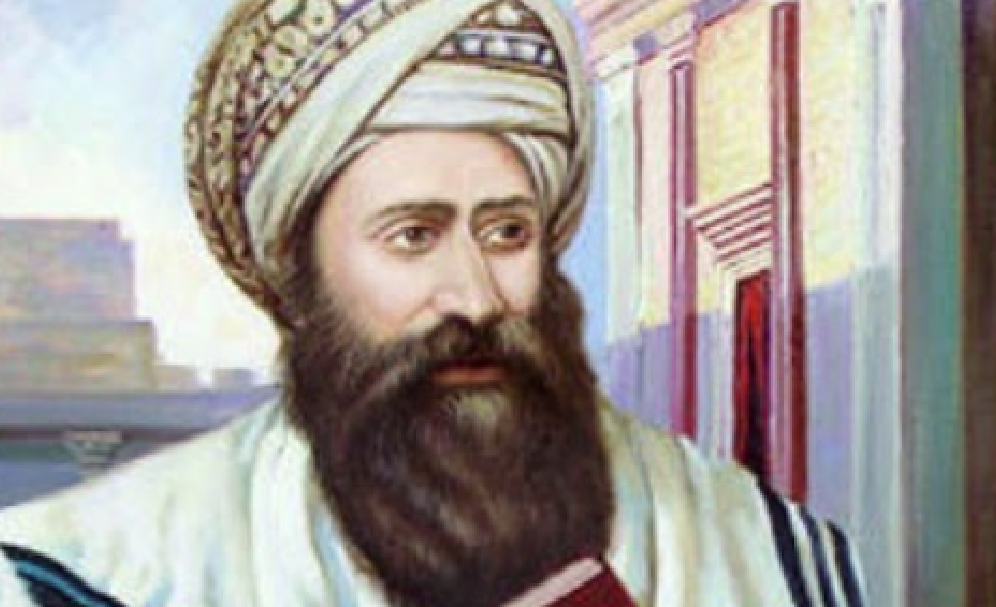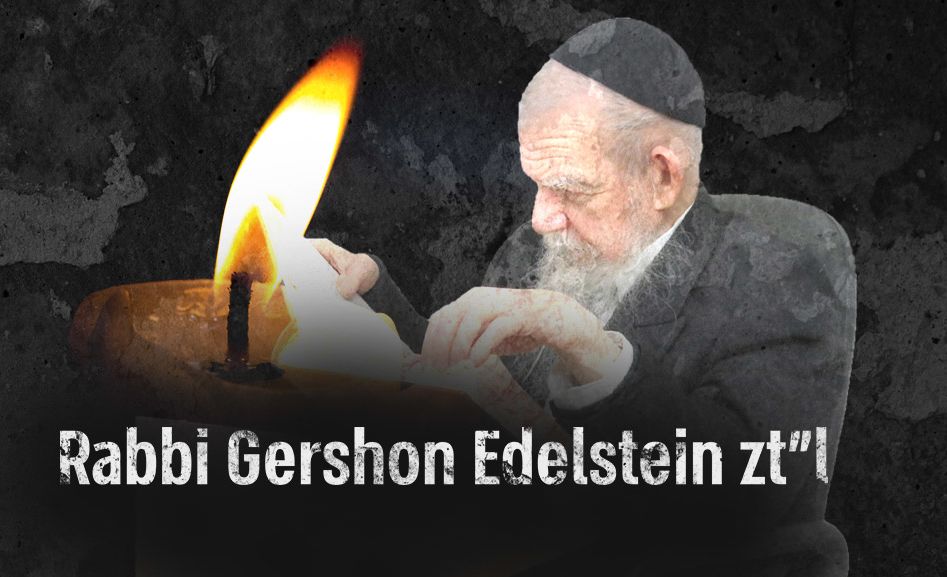
Rebbe Natan and Baalei Teshuvah
Although Rebbe Natan was a Torah scholar of huge stature, he sacrificed his own learning for the sake of outreach, lending a helping and guiding hand to the spiritual newcomer...

This week, on the tenth of the Hebrew month of Tevet, is the yahrtzeit (date of passing) of Rebbe Natan of Breslev. The most important thing in Rebbe Natan’s life and legacy was and is hafatza, spreading emuna and bringing all of mankind close to Hashem. Inasmuch, Rebbe Natan placed great importance on helping “BTs”- baalei teshuvah or newly observant individuals – pursue the path of success and fulfillment. Although he himself was a Torah scholar of huge stature, he sacrificed his own learning for the sake of outreach, lending a helping and guiding hand to the spiritual newcomers and strengthening the faith of the observant who had fallen into the rut of routine.
During a person’s initial stages as a newly-observant Jew, he has a tendency to forget where he comes from. This is natural; the baal teshuvah wants to sever himself from many things in his former world while immersing himself in the world of Torah. While these intentions are honorable, the outcome is that he either forgets or fools himself as to his true spiritual standing. Many times, he looks down at others. Now, up to his neck in a swamp of arrogance and self-righteousness, he doesn’t realize how deeply connected his heart is to promiscuity, slander, and dishonesty. The longer his beard gets and the fancier his Shabbat clothes are, the more he fails to see his true spiritual level. The more Torah he learns, the more he denies that his inner dimension needs as much – if not more overhaul as his outer appearance underwent. And, when he fails to truly work on himself, Hashem reminds him; that’s when the baal teshuvah’s big challenges begin.
Rebbe Natan of Breslev says that a tzaddik’s most difficult task is to bring souls closer to Hashem, while helping each one to know himself. This is challenging because Hashem helps the new baal teshuvah by giving him a free gift of Divine illumination that is way above his true spiritual level. Having experienced and tasted such a magnificent sweetness of light that engulfs his soul with love, the new baal teshuvah  derives the strength to withstand the coming challenges. Yet, many new BTs think that the light belongs to them, that they have earned it. This, of course, is wrong.
derives the strength to withstand the coming challenges. Yet, many new BTs think that the light belongs to them, that they have earned it. This, of course, is wrong.
Hashem did the same thing when he took the Children of Israel out of Egypt. In order to get them to cast away the idolatrous habits and thoughts that they had acquired under decades of Egyptian influence, Hashem had to give them a very strong dose of Divine illumination that would give them the desire to go from heresy to emuna, from slavery to freedom, from bodily lust to spiritual desire. Ever since the Exodus, Hashem has done the same with new BTs, to help them break the chains of the secular environment and physical-gratification-oriented society that they were brought up in. Without Hashem’s help, no one would have had the power to make such a dramatic move on their own. But, once they do begin living a Torah-observant life, Hashem wants them to earn their spiritual level and uplift their inner selves, rather than simply changing outer behavior and appearance.
Many BTs complain of the sudden “darkness” after they begin observing Torah and mitzvot. They long for the “sweet light” of the lofty spiritual level that they had tasted, but it was not theirs.
BTs have setbacks when they forget who they really are and when they fail to hear the inner voice calling out, “Where are you?” The evil inclination plants lies and fantasies in their brains, especially when their old forbidden desires reawaken. They become disoriented and begin asking, “What’s happening to me?” They think that their teshuvah is worthless; at this point, many lose heart and return to their old ways, casting away the yoke of Torah and mitzvot that has become unbearable to them. Why? They were fooling themselves; they grew long sidecurls and put on black hats, but they didn’t purify themselves on the inside.
Many BTs feel good about themselves, especially after they wake up at midnight, say midnight lamentations then learn Gemara until daybreak. They have a right to feel good, but Hashem speaks to them saying, “My beloved son, your efforts are wonderful, but you’ve neglected the inner chamber of your heart; there’s still a lot of cleaning to be done there. Don’t fool yourself. Be honest with me; your outer purification just won’t work unless you strive to improve your character traits and rid yourself of lust and bad habits. That’s the necessary inner purification that leads you to righteousness.”
If a BT would assess himself truthfully, he would not be walking around deluding himself that he is already a tzaddik. Rather he would ask himself, “Where am I in relation to anger, impatience, worry and jealousy? Why aren’t my thoughts pure? Why do I still have these undesirable movies playing in full cinema-scope in my head?” If he were honest with himself, he wouldn’t have spiritual crash landings.
If a BT entertains thoughts of spiritual grandeur, he can come back to proportions of humility by looking at Rebbe Natan, a truly humble tzaddik and scholar who utterly nullified himself to spread the teachings of his beloved rabbi and teacher, Rebbe Nachman. We all still have quite a way to go, may his holy memory intercede on our behalf, amen!












Tell us what you think!
Thank you for your comment!
It will be published after approval by the Editor.